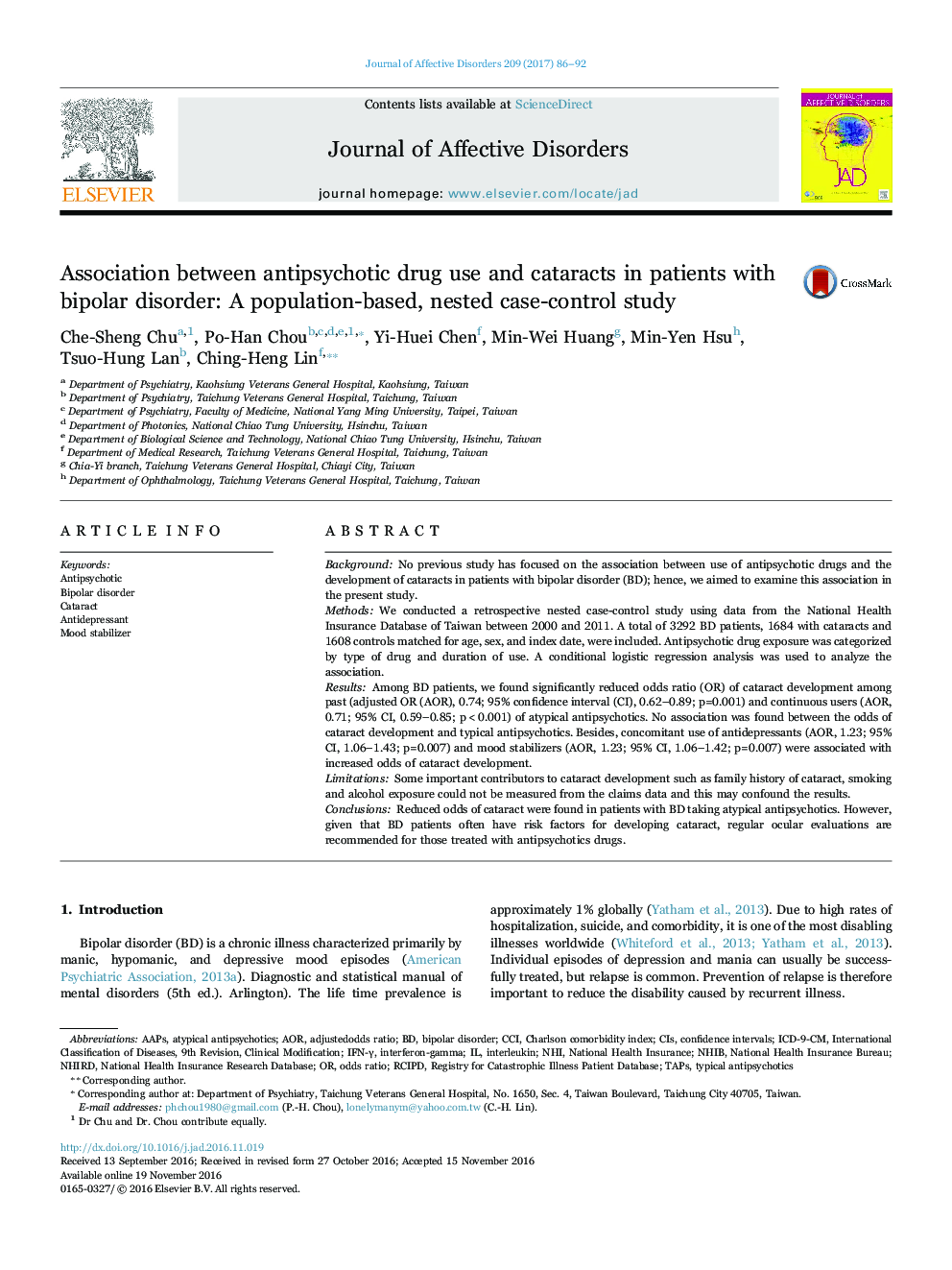| Article ID | Journal | Published Year | Pages | File Type |
|---|---|---|---|---|
| 5722271 | Journal of Affective Disorders | 2017 | 7 Pages |
â¢We examined associations between use of antipsychotic drugs and development of cataract in patients with bipolar disorder.â¢A retrospective nested case-control study using nationwide claims data was conducted.â¢Patients with bipolar disorder treated with atypical antipsychotics have reduced odds risk of cataract development.â¢We did not find associations between typical antipsychotics and cataract.
BackgroundNo previous study has focused on the association between use of antipsychotic drugs and the development of cataracts in patients with bipolar disorder (BD); hence, we aimed to examine this association in the present study.MethodsWe conducted a retrospective nested case-control study using data from the National Health Insurance Database of Taiwan between 2000 and 2011. A total of 3292 BD patients, 1684 with cataracts and 1608 controls matched for age, sex, and index date, were included. Antipsychotic drug exposure was categorized by type of drug and duration of use. A conditional logistic regression analysis was used to analyze the association.ResultsAmong BD patients, we found significantly reduced odds ratio (OR) of cataract development among past (adjusted OR (AOR), 0.74; 95% confidence interval (CI), 0.62-0.89; p=0.001) and continuous users (AOR, 0.71; 95% CI, 0.59-0.85; p<0.001) of atypical antipsychotics. No association was found between the odds of cataract development and typical antipsychotics. Besides, concomitant use of antidepressants (AOR, 1.23; 95% CI, 1.06-1.43; p=0.007) and mood stabilizers (AOR, 1.23; 95% CI, 1.06-1.42; p=0.007) were associated with increased odds of cataract development.LimitationsSome important contributors to cataract development such as family history of cataract, smoking and alcohol exposure could not be measured from the claims data and this may confound the results.ConclusionsReduced odds of cataract were found in patients with BD taking atypical antipsychotics. However, given that BD patients often have risk factors for developing cataract, regular ocular evaluations are recommended for those treated with antipsychotics drugs.
